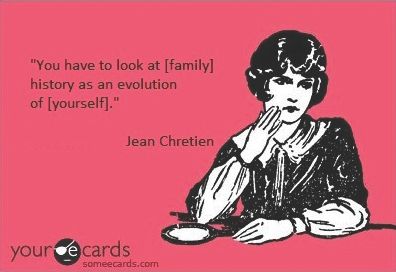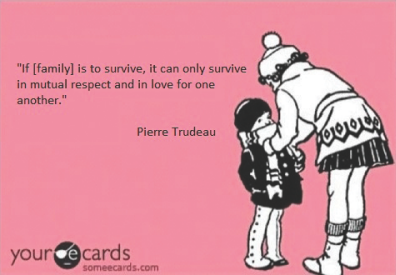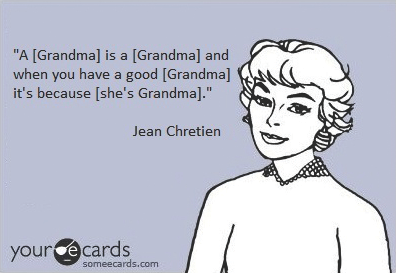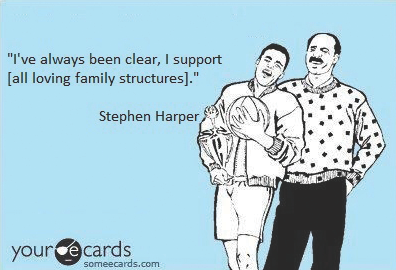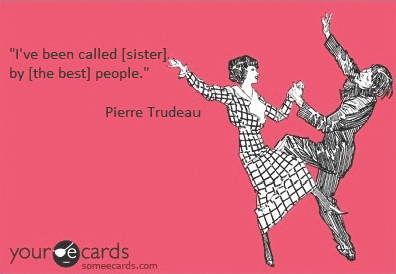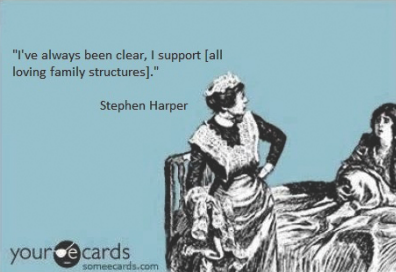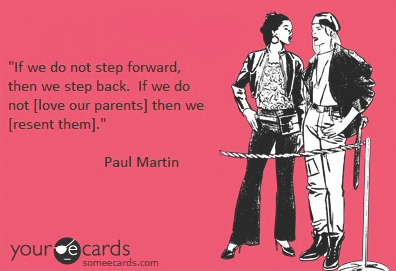By Sasha Moedt (The Cascade) – Email
Print Edition: November 14, 2012
If you’ve seen those sassy e-cards in the C-building tucked here and there in the hallway by your classroom, you’ve got to wonder why they’re there – it’s like seeing your Facebook feed come to life. Here’s the answer to your curiosity: an interview with the artist, Alicia Williams.
What class is this project for, and what kind of stuff are other students doing?
This project is for Art History: Art Practices and Popular Culture I. Other students have done stuff like a fake Twitter account for Mario, fake magazines, photos on bullying, spot the difference, binoculars and audio/radio projects. All as commentary on popular culture, social spaces and media in general.
What inspired you to do this particular project?
My projects generally always have to do with popular culture in a post-modern kinda style. I used “Your Ecards” because they are things you see every day through social media. On any given day I’ll have like three on my newsfeed on Facebook, and I don’t know about you, but every time I see one I’ll stop and have a cheap laugh, or get mad, depending on the content. I guess the idea was to transform them into something positive, I mean, [in the past] I read one that said “you wouldn’t have to worry about AIDS if you weren’t such a slut” or something like that. And lots of them deal with social issues like that, be it slut-shaming or calling down someone for being poor, or glamourizing bitchiness, gossip and alcoholism. You’d think we as people would be past all this bullshit by now.
As well, around the time of the creation of this project I read this list about things you should have done by the time you’re 25 and one of them kind of spoke to me on a level personal enough for me to not feel like sharing with The Cascade. So, I decided to do quotes on family values. Who better to quote on family values than a Prime Minister?
Can you describe the process of picking quotes, and playing around with them?
I chose the easiest quotes to manipulate. Or the funniest ones to be manipulated. For example, one Stephen Harper quote was originally “I’ve always been clear, I support the traditional definition of marriage,” which I changed to say, “I’ve always been clear, I support [all loving family structures.]” What I liked about this project was learning more about our Prime Ministers past, but it was kind of terrifying to see how much more progressive everyone was in comparison to ol’ Steve-o.
How did you find quotes and pick between them?
I picked the Prime Ministers who had the most quotes listed on the internet. I kind of wish I dug deeper and found one from every/most Prime Ministers, but I think the four I chose got the message across fine.
What did you want students to think when they saw them around the school?
I wanted people to stop and look. Maybe have a laugh about the goofiness of the quote changes. But mostly think about their families, what they mean to them, and how they impact their lives.
What would you call this kind of art?
I’m going to say art as social commentary.
Do you know anything about those weird owl-things with the shiny mirror eyes around the C-building??
A woman in my class did those! It was like a comment on how people act based on whether or not they think they are being watched. During her crit she talked about how prison guards will be in the centre of the yard and prisoners don’t act up because the guards are there watching, even though they are in separate spaces. But yeah, it’s about surveillance . . . I don’t know her name and I can’t remember the exact terms she used to define it.
Any aspect or element of this project I’m missing that you want readers to know about?
I don’t want to sound preachy, because I’m totally guilty of it too, but the world would be a better place if we all thought about content and context before we laugh. Shit that perpetuates social elitism isn’t funny. So if people who saw them didn’t see them as a project on family values, I hope at least they could make someone reflect on what they’re laughing at.

